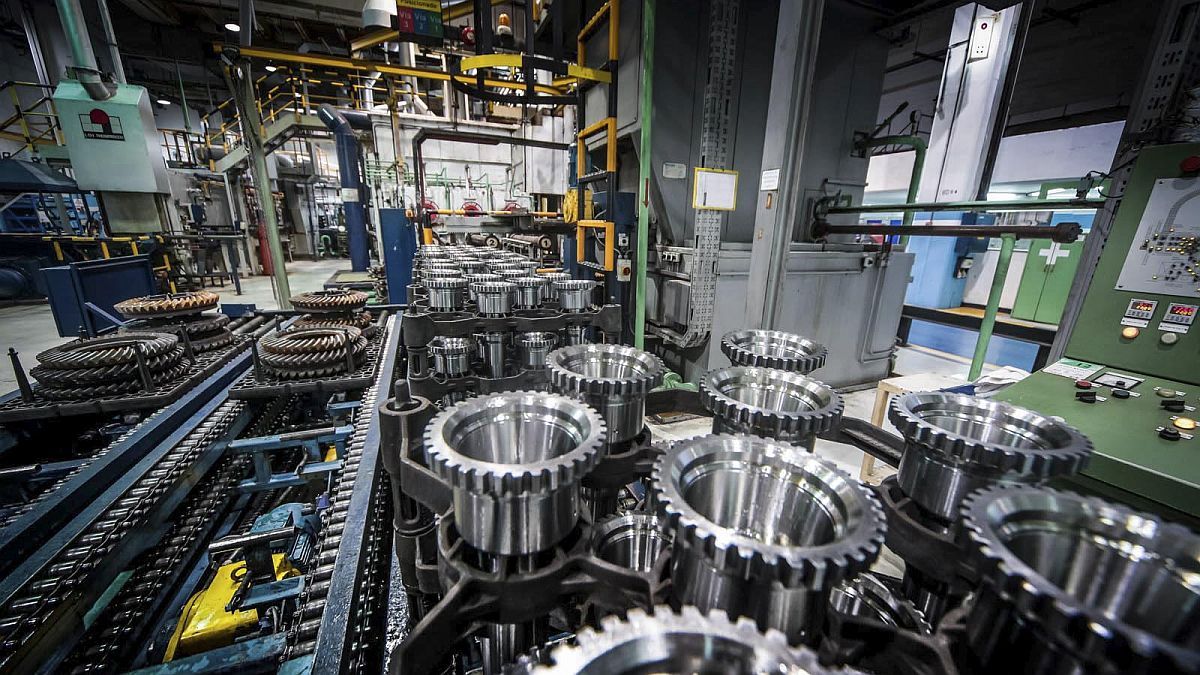“I believe that June, but especially July and August, are very difficult months in terms of activitybecause the stocks fully impact imports,” Lorenzo Sigaut Gravina, an economist at the consulting firm Equilibra, summed up for Ámbito, detailing: “Companies have a certain stock of merchandise and can continue producing, but it reaches a point where, if they do not replenish imported supplies, everything begins to get complicated”.
“After the slight growth in May, probably in June in seasonally adjusted terms the level of activity has been relatively stable, and I think that in July and August there will be a strong blow. In addition, inflation was very high in July and no parity foresaw strong reinforcements for that month “remarked Sigaut Gravina.
“In June and July it was noted that the activity cannot be maintained because basically there are no dollars to import what is needed to maintain, precisely, that activity. So, that triggered an inflationary acceleration. But the basic question is that there are no dollars. It is inevitable that the economy will slow down due to this factor”, pointed out the economist Jorge Neyro, who explained: “The origin of the slowdown in activity is the lack of dollars and that is something that is going to be maintained, at least in the short term. Then, it is very difficult for the activity to show good numbers in June, July and August”.
“So far this year, somewhat erratic dynamics. Activity is half a point above December 2021: last year’s meager statistical floor helps, so that in any of the scenarios we have consolidated GDP growth in 2022. But, obviously, the ideal would be to continue showing during the year an accelerating productive dynamic,” said Sergio Chouza, director of the Sarandí consultancy.
In any case, the economist explained that a possible acceleration in growth “Today it is in check, especially due to financial instability”. “The main determinant that is generating rigidity and can slow down the direction of growth is the situation of financial instability. That, beyond a chronic distrust of the market with this government, it has an objective basis which is that ran out of dollars around the middle of juneChouza explained.
“In that context, political changes are a positive anchor of expectations. In addition to the fact that the worst part of the year (June and July) has already passed and in a few weeks we will see slightly more balanced numbers in terms of reserves,” added the economist from the Sarandí consulting firm, who in any case clarified that the situation regarding imports will not normalize from one day to the next, “but gradually it will be possible to unlock”. “I believe that the channel that can most put a ceiling on the continuity of growth is the availability of foreign currency and not so much the decision made with some macro variables that make the nominal stabilization of the economy: for example, the interest rate “, he pointed.
what’s coming
For the chief economist of FIDE Nicolás Zeolla, it is still early to analyze what may happen in the future with the economy because “It is not yet clear what the roadmap that the Government will follow” from the assumption of Massa. “In the case of activity, I believe that the fundamental lines do not changebecause basically there is an aspect related to the Central Bank’s import administration policy that is going to have an impact on the slowdown in activity”, he pointed out, when laying out the current scenario.
“The possible measures announced by Massa could have a positive impact if they help relax the import trap. Because any type of devaluation in installments or a higher exchange rate for a productive sector, for example, is going to help reinforce reserves, but if the import trap is not relaxed, it will have no effect on the activity. Beyond the fact that there is less uncertainty about a possible devaluation, we have to see what happens with the stocks”, added Neyro.
Along the same lines, Sigaut Gravina concluded: “Moving forward, we have to wait for the measures announced by the new minister to think about how the film continues: but there is a reality which is that, if companies continue with restrictions to access imported productive inputs, the level of activity and inflation will go in directions contrary to those desired. In other words, activity is going to go down and inflation is going to go up. There is a great shortage of foreign currency and if it is not obtained, it is very difficult to loosen the clamp on imports, then the activity will not be able to grow again and may even continue to decline if the clamp on imports has to continue to be strengthened to the extent that do not accumulate reserves.
Source: Ambito
David William is a talented author who has made a name for himself in the world of writing. He is a professional author who writes on a wide range of topics, from general interest to opinion news. David is currently working as a writer at 24 hours worlds where he brings his unique perspective and in-depth research to his articles, making them both informative and engaging.




